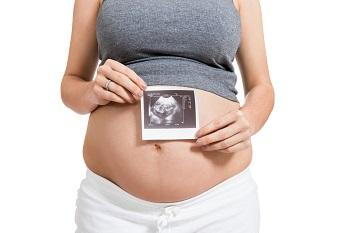What Makes a Pregnancy High-risk?
- posted: Oct. 02, 2017
High-risk pregnancies occur when your health or that of your baby can be affected during the pregnancy or delivery. Are you concerned your pregnancy may be high-risk ? Take a look at a few factors that can increase your risk.
? Take a look at a few factors that can increase your risk.
Age
If you're under age 17 or over 35, your pregnancy will be considered high risk, due to the increased likelihood of complications.
Preeclampsia
Preeclampsia, also called toxemia, occurs when you develop high blood pressure and a high level of protein in your urine. The condition can be dangerous for both you and your baby and usually develops after the 20th week of pregnancy. It can cause swelling in the hands, legs, and feet.
Gestational diabetes
This form of diabetes develops around the 24th week of pregnancy and is usually detected during a routine screening. The problem occurs when your body can't use glucose efficiently. In most cases, you'll no longer have diabetes after your baby is born.
Multiple pregnancy
Complications, gestational diabetes, and premature labor are more likely if you're carrying more than one baby.
Fetal issues
Your pregnancy will be considered high-risk if there's a developmental or genetic problem with your baby, or if a heart, lung or kidney problem is spotted during an ultrasound,
Placenta previa
Placenta previa occurs when the placenta partially or completely covers the cervix. If you have the condition, you may experience severe bleeding during your pregnancy. Because severe bleeding can also occur during birth, you may need a Cesarean section, particularly if the placenta completely covers the cervix. Bed rest is usually recommended for women who have placenta previa.
Medical conditions
You or your baby may be more likely to experience complications if you have high blood pressure, cancer, epilepsy, asthma, diabetes, HIV or AIDS, lung disease, autoimmune disorders, kidney or heart problems, or sexually transmitted diseases.
Multiple miscarriages
Women who have had three or more miscarriages can benefit from more intense monitoring during pregnancy.
Most high-risk pregnancies have happy endings, thanks to the special care women receive during the pregnancies. If you have an issue that could raise your risk, it's important to talk to your ob/gyn about your concerns as soon as you become pregnant or notice a problem.
Our Location
100 E. Alton Gloor Blvd., BLDG B, Ste. 130
Brownsville, TX 78256






